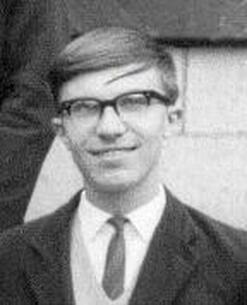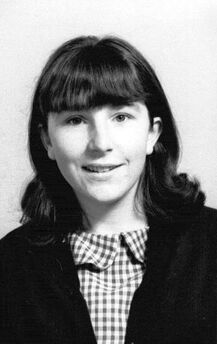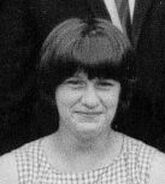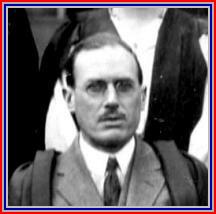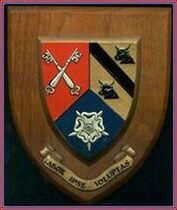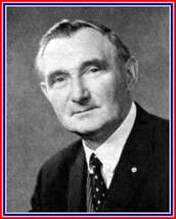The transition of HGS to HHS, Academic Year 1967-68
This topic is referred to in various parts of the site but here it is as a main topic.
This topic is referred to in various parts of the site but here it is as a main topic.
1. Terry McCroakam
The change from HGS to HHS ie. from 11-18 Grammar School to 13-18 Comprehensive was the brain child of politicians. The reasons were to make all pupils 'equal' and do away with 11+. This resulted in many of our sports opponents eg Rothwell GS, Kings Pontefract, Thorne GS, Percy Jacksons etc... going the same way. At Hemsworth, HGS was destroyed both in the structural/material sense and its academic/traditional sense. Anything to do with the grammar school had to go. The House system was dismantled, the cups and shields went (although some mysteriously reappeared years later), honours boards were taken down and many were destroyed. School assemblies went. They were replaced by year assemblies. The uniform went. Sports Day as we/you knew it went. Competition was frowned upon at that time. The school became a place without tradition. The changes to the buildings were tremendous or horrendous as some of you have witnessed. The outside concrete slabs covering the front of the house can be seen elsewhere on this website. This became the new hall, but not big enough to hold the whole school. The woodwork, metalwork and pottery rooms were knocked down to enable a 3 storey concrete slab to be put up. The bulldozers were waiting for the Easter assembly to finish and some of the staff were still on the site when they started. Inside the old part, the hall became a library, the library became the staffroom, male and female staffrooms were converted into study rooms for the 6th form. Room 9 behind the Head's office became an entrance hall from the front. The area around the bike shed and boys' cloakroom entrance became an entrance and staircase up to a 6th form library area. The boy prefects' room became a matron's room. Girl prefects became a cloakroom and so it goes on... Some of you may well recall that teaching went on during the changes, with workmen in corridors and classrooms. I had an electrician in my maths lessons so often I thought I would have to either do a report or enter him for 'o' level. All in all not a happy time for ex-pupils on the staff and probably more so for Mr. Hamilton.
I believe that if the change was necessary, the good traditions of HGS should have been retained and added to e.g. another house or two added to H.T.G.P. but it was not to be. Any of you who were privileged to be present at the FINAL ASSEMBLY when the new head walked out at the impromptu singing of the school song will know what I am trying to convey. Some of us on the staff did try to get things changed or kept but to no avail. I believe we are now seeing the results of 'education not being broke but they tried to mend it and are still doing so today'.
Thanks to Dave McKenzie and this website and the enthusiasm shown for it by many, HGS is not dead but just asleep. I am sure RWH, Les Collette et al. would be proud of it.
Terry McCroakam (Pupil 1948-57 and HGS/HHS Teacher 1965-1990)
The change from HGS to HHS ie. from 11-18 Grammar School to 13-18 Comprehensive was the brain child of politicians. The reasons were to make all pupils 'equal' and do away with 11+. This resulted in many of our sports opponents eg Rothwell GS, Kings Pontefract, Thorne GS, Percy Jacksons etc... going the same way. At Hemsworth, HGS was destroyed both in the structural/material sense and its academic/traditional sense. Anything to do with the grammar school had to go. The House system was dismantled, the cups and shields went (although some mysteriously reappeared years later), honours boards were taken down and many were destroyed. School assemblies went. They were replaced by year assemblies. The uniform went. Sports Day as we/you knew it went. Competition was frowned upon at that time. The school became a place without tradition. The changes to the buildings were tremendous or horrendous as some of you have witnessed. The outside concrete slabs covering the front of the house can be seen elsewhere on this website. This became the new hall, but not big enough to hold the whole school. The woodwork, metalwork and pottery rooms were knocked down to enable a 3 storey concrete slab to be put up. The bulldozers were waiting for the Easter assembly to finish and some of the staff were still on the site when they started. Inside the old part, the hall became a library, the library became the staffroom, male and female staffrooms were converted into study rooms for the 6th form. Room 9 behind the Head's office became an entrance hall from the front. The area around the bike shed and boys' cloakroom entrance became an entrance and staircase up to a 6th form library area. The boy prefects' room became a matron's room. Girl prefects became a cloakroom and so it goes on... Some of you may well recall that teaching went on during the changes, with workmen in corridors and classrooms. I had an electrician in my maths lessons so often I thought I would have to either do a report or enter him for 'o' level. All in all not a happy time for ex-pupils on the staff and probably more so for Mr. Hamilton.
I believe that if the change was necessary, the good traditions of HGS should have been retained and added to e.g. another house or two added to H.T.G.P. but it was not to be. Any of you who were privileged to be present at the FINAL ASSEMBLY when the new head walked out at the impromptu singing of the school song will know what I am trying to convey. Some of us on the staff did try to get things changed or kept but to no avail. I believe we are now seeing the results of 'education not being broke but they tried to mend it and are still doing so today'.
Thanks to Dave McKenzie and this website and the enthusiasm shown for it by many, HGS is not dead but just asleep. I am sure RWH, Les Collette et al. would be proud of it.
Terry McCroakam (Pupil 1948-57 and HGS/HHS Teacher 1965-1990)
2. Sheila Kelsall
Dear Dave,
Terry's account of the loss of the Grammar School paints such a disturbing picture. The resentment and heartbreak at the destruction of so much that was good must be immense for those who were stuck in the middle of it. The sheer waste and lost quality of education and experiences beggars belief.
Sheila Kelsall
Dear Dave,
Terry's account of the loss of the Grammar School paints such a disturbing picture. The resentment and heartbreak at the destruction of so much that was good must be immense for those who were stuck in the middle of it. The sheer waste and lost quality of education and experiences beggars belief.
Sheila Kelsall
3. Terry McCroakam (further)
In view of the latest Government Education statement (June 2002) regarding the failure of comprehensive education, (Harold Wilson's Education Minister Anthony Crossland "I'll shut down every Grammar School in the land"), my article about the change to HHS is even more relevant.
Terry McCroakam
In view of the latest Government Education statement (June 2002) regarding the failure of comprehensive education, (Harold Wilson's Education Minister Anthony Crossland "I'll shut down every Grammar School in the land"), my article about the change to HHS is even more relevant.
Terry McCroakam
4. William Dyson
A Pupil's Reaction at the time
Far from being one of the "old school tie" patriots with nostalgic aspirations of the world-famous institution, the English Grammar School, I would say that I look towards the future with hope and excitement at our new system of comprehensive education. It is at least something different and new, about which much has been said and argued. But I want to look at this on a more materialistic, perhaps even mundane basis, for it is on this level, I think, that a little scepticism creeps in.
Look around! Our long awaited, much publicised new buildings have sprung up in next to no time. Even now they are accepted as part of the scenery in which we grow up both academically and spiritually. Alongside the venerable antiquity of the "quad" and the growing maturity of the junior and science blocks, these latest additions to the family seem singularly out of place and immature. One cannot help but feel that amidst all that glass, concrete and girders, there is comparatively little character or charm. These buildings have been thrown up like toy blocks to house the material of our education. (Do excuse me if I am now releasing the full onslaught of my dismay, I tried to lead up to it as gradually as I could.) Some might find them stunning, eye-catching. All will find them "modern" but none, I think, can agree that they are aesthetically beautiful. Those angular, shining, monstrous things might house wonderfully new devices both for teaching and relaxation, but don't they seem just a little unstable, just a little spindly and cold? I hope I am not disheartening those who still have many years of their sentence left, but personally I think I will be glad to be gone next year.
Moving on, now, from the materialistic level, there is something on a much greater level which needs to be said, I think. Individuality and character in the buildings of today is almost completely non-existent. Everything is square, tall, and most of all, just right fore the job. Life is becoming compartmentalised. Each person has his own specific task in his own corner. People's sphere of experience, far from widening in this vibrant new scene, is becoming narrow and stagnant. Artificiality dominates us. Surely the shape and size of our buildings ought to be determined by the part which they are going to play in the lives of many people. Thousands of pupils will come to this school and accept without question that life goes on in glass cages sandwiched between each other. Perhaps in years to come even those absurd bowls of flowers - today's symbol of nature amidst everyday working life, it seems! - will be considered outdated. Something must be done!
Dyson W. L6A.
Article supplied by Terry McCroakam. Thank you Terry.
A Pupil's Reaction at the time
Far from being one of the "old school tie" patriots with nostalgic aspirations of the world-famous institution, the English Grammar School, I would say that I look towards the future with hope and excitement at our new system of comprehensive education. It is at least something different and new, about which much has been said and argued. But I want to look at this on a more materialistic, perhaps even mundane basis, for it is on this level, I think, that a little scepticism creeps in.
Look around! Our long awaited, much publicised new buildings have sprung up in next to no time. Even now they are accepted as part of the scenery in which we grow up both academically and spiritually. Alongside the venerable antiquity of the "quad" and the growing maturity of the junior and science blocks, these latest additions to the family seem singularly out of place and immature. One cannot help but feel that amidst all that glass, concrete and girders, there is comparatively little character or charm. These buildings have been thrown up like toy blocks to house the material of our education. (Do excuse me if I am now releasing the full onslaught of my dismay, I tried to lead up to it as gradually as I could.) Some might find them stunning, eye-catching. All will find them "modern" but none, I think, can agree that they are aesthetically beautiful. Those angular, shining, monstrous things might house wonderfully new devices both for teaching and relaxation, but don't they seem just a little unstable, just a little spindly and cold? I hope I am not disheartening those who still have many years of their sentence left, but personally I think I will be glad to be gone next year.
Moving on, now, from the materialistic level, there is something on a much greater level which needs to be said, I think. Individuality and character in the buildings of today is almost completely non-existent. Everything is square, tall, and most of all, just right fore the job. Life is becoming compartmentalised. Each person has his own specific task in his own corner. People's sphere of experience, far from widening in this vibrant new scene, is becoming narrow and stagnant. Artificiality dominates us. Surely the shape and size of our buildings ought to be determined by the part which they are going to play in the lives of many people. Thousands of pupils will come to this school and accept without question that life goes on in glass cages sandwiched between each other. Perhaps in years to come even those absurd bowls of flowers - today's symbol of nature amidst everyday working life, it seems! - will be considered outdated. Something must be done!
Dyson W. L6A.
Article supplied by Terry McCroakam. Thank you Terry.
5. Christine Slater
Dear Mac,
Yes I was at the school at this time, and remember the first end of year Assembly when, having been told that the school song would no longer be sung, the older pupils (and staff too) sang it at the end. It was the start of the end to a lot of the old traditions, which did not go down well with a lot of the pupils. I can remember my dismay at seeing all the achievement boards with dates going back to the 1920's being ripped out and disposed of when the Main Hall was refurbished. It was very sad that the "new regime" couldn't have used a bit of tact and blended the new and old together in a better way. I think a lot of the teachers probably felt the same way but I never heard any actual dissent from them.
Christine Slater
Further Comment about the Honours Boards These were ripped down and thrown outside the Main Hall when it was remodelled as the school changed to a High School. I can remember seeing them thrown on the floor waiting to go in the skip, beside the open Hall side doors that led to the path leading to the Green Gate (near the girls' outside loos). It seemed an awful shame that none were to be kept, but I don't remember seeing them anywhere in school afterwards. Mr Ablett (the new Head master) seemed to want eradicate all memory of the old school altogether. The older pupils were very annoyed about it, but the changes were made anyway.
Regards,
Chris. Slater
A former Head Boy informed us that he saw the Honours Boards on fire in a skip when he came to visir the school one day. He saw his own name in the flames! How devastating. (Ed.)
Dear Mac,
Yes I was at the school at this time, and remember the first end of year Assembly when, having been told that the school song would no longer be sung, the older pupils (and staff too) sang it at the end. It was the start of the end to a lot of the old traditions, which did not go down well with a lot of the pupils. I can remember my dismay at seeing all the achievement boards with dates going back to the 1920's being ripped out and disposed of when the Main Hall was refurbished. It was very sad that the "new regime" couldn't have used a bit of tact and blended the new and old together in a better way. I think a lot of the teachers probably felt the same way but I never heard any actual dissent from them.
Christine Slater
Further Comment about the Honours Boards These were ripped down and thrown outside the Main Hall when it was remodelled as the school changed to a High School. I can remember seeing them thrown on the floor waiting to go in the skip, beside the open Hall side doors that led to the path leading to the Green Gate (near the girls' outside loos). It seemed an awful shame that none were to be kept, but I don't remember seeing them anywhere in school afterwards. Mr Ablett (the new Head master) seemed to want eradicate all memory of the old school altogether. The older pupils were very annoyed about it, but the changes were made anyway.
Regards,
Chris. Slater
A former Head Boy informed us that he saw the Honours Boards on fire in a skip when he came to visir the school one day. He saw his own name in the flames! How devastating. (Ed.)
6. John Hardy
Dear Dave,
Having read on the Forum about the change from HGS to HHS, perhaps I could contribute to the debate. When the change came there was clearly no misgiving about the demolition of an icon in Hemsworth's history. The value of a Grammar school education which had benefitted the working class children of a mainly mining community for over 40 years was not considered. These pupils in many instances enriched society in their future years with the knowledge and their manners which they received at HGS. The instigators of the change were led by an opinion that semblance of equality must be seen at all times to rule the day. My heart weeps for the Honours boards, the traditions and the Sporting playing fields that we once revered.
Best Wishes
John Hardy
Dear Dave,
Having read on the Forum about the change from HGS to HHS, perhaps I could contribute to the debate. When the change came there was clearly no misgiving about the demolition of an icon in Hemsworth's history. The value of a Grammar school education which had benefitted the working class children of a mainly mining community for over 40 years was not considered. These pupils in many instances enriched society in their future years with the knowledge and their manners which they received at HGS. The instigators of the change were led by an opinion that semblance of equality must be seen at all times to rule the day. My heart weeps for the Honours boards, the traditions and the Sporting playing fields that we once revered.
Best Wishes
John Hardy
7. Linda Collingwood
I remember the new 6th form block, feeling very lucky we had our own library, small classrooms, our own dining room and a snack bar. We ran the snack bar ourselves - we set up a committee with a rota for serving, ordering etc. I don't remember if a teacher was responsible for us or not - just the days of freedom and getting the bus home from the village as late as 5 o'clock because we had our own space. I suppose that was the good thing that came out of the changeover, but I'm sure that could have been achieved without destroying everything else. I don't think I realised how good HGS was until much later in life.
Linda Collingwood (HGS 1962-69)
I remember the new 6th form block, feeling very lucky we had our own library, small classrooms, our own dining room and a snack bar. We ran the snack bar ourselves - we set up a committee with a rota for serving, ordering etc. I don't remember if a teacher was responsible for us or not - just the days of freedom and getting the bus home from the village as late as 5 o'clock because we had our own space. I suppose that was the good thing that came out of the changeover, but I'm sure that could have been achieved without destroying everything else. I don't think I realised how good HGS was until much later in life.
Linda Collingwood (HGS 1962-69)
8. School Magazine 1967
This year, perhaps above all others, has been a year of change. There have been years when more members of staff have left us but there can have been few when we have felt so great a sense of loss. Miss Alliot left us and moved to Scotland with her husband, Mr. Hudson moved to York and after many years of faithful service Miss. Blake retired. They all worked tirelessly for school and will be missed by us all. We are, however, happy to welcome to the school Miss. Jackson, Mile. Béraud, Mr. Waters, Mr. Owens and Mr. Walsh. We offer too our congratulations to Mr. and Mrs. Plummer on their marriage during this year.
Of course, the greatest change and one that is causing some anxiety among us, is the re-organisation of the school. Although we are not yet comprehensive the adaptation of the premises, for a comprehensive intake is very much in evidence. The grounds have been ripped, holes torn in walls and outbuildings razed to the ground. No one, however progressive, can see the demolition of trees and the smashing of old stone without some sense of sadness, and it is hard to accept progress as something good when it manifests itself in the destruction of beauty. For many pupils, past and present, the grounds of this school have been a place of quiet and peace. They have exercised an influence over us, and have become part of us. It seems a poor exchange when all we are likely to have in their place is cold, streamlined concrete and glass.
With the destruction of the grounds our identity will pass. Our pupils must learn allegiance to another school and our old scholars will have lost a link with the past. It seems that we are old and must make way for a new world - we are obsolete.
Even so, we may regret and question our passing. The nation-wide re-organisation of secondary education is not simply a matter of education. Its educational advantages are unproven and therefore open to doubt. It is perhaps more clearly to be understood as one small part of a much wider revolution, an attempt to level society, to make sure that all men share as equally as possible the benefits and opportunities available.
That all men should be fellows is clearly a laudable aim and it is morally right. If this re-organisation can make our future generations more at one than they have been in the past and if it can make education more effective and democratic, then it will have been justified. Even so, it smacks of a gamble and the stakes are high.
The desire for equality, which is the deep motive of comprehensive education, is a strange and dangerous virtue. If a man of wealth volunteers to give up his riches for the good of others, his action is noble and selfless - he gains a kind of dignity from it. It is quite another matter for a man who has nothing to claim as his right the property of his neighbour - he may produce his philosophical arguments but he is known for a thief. To desire equality is not of itself a virtue; that can only be determined by the motive.
Equality has been called for and has of political necessity been granted. It is now for those who have made this claim to consider their motives. Is their equality a sharing of their child's opportunity with their neighbours' children, or is it the jealous destruction of a system in which their neighbours' children merited and achieved success?
In all this one thing is certain - that Hemsworth Grammar School will cease to exist and a great many people will be the sadder for it.
Editorial Committee
This year, perhaps above all others, has been a year of change. There have been years when more members of staff have left us but there can have been few when we have felt so great a sense of loss. Miss Alliot left us and moved to Scotland with her husband, Mr. Hudson moved to York and after many years of faithful service Miss. Blake retired. They all worked tirelessly for school and will be missed by us all. We are, however, happy to welcome to the school Miss. Jackson, Mile. Béraud, Mr. Waters, Mr. Owens and Mr. Walsh. We offer too our congratulations to Mr. and Mrs. Plummer on their marriage during this year.
Of course, the greatest change and one that is causing some anxiety among us, is the re-organisation of the school. Although we are not yet comprehensive the adaptation of the premises, for a comprehensive intake is very much in evidence. The grounds have been ripped, holes torn in walls and outbuildings razed to the ground. No one, however progressive, can see the demolition of trees and the smashing of old stone without some sense of sadness, and it is hard to accept progress as something good when it manifests itself in the destruction of beauty. For many pupils, past and present, the grounds of this school have been a place of quiet and peace. They have exercised an influence over us, and have become part of us. It seems a poor exchange when all we are likely to have in their place is cold, streamlined concrete and glass.
With the destruction of the grounds our identity will pass. Our pupils must learn allegiance to another school and our old scholars will have lost a link with the past. It seems that we are old and must make way for a new world - we are obsolete.
Even so, we may regret and question our passing. The nation-wide re-organisation of secondary education is not simply a matter of education. Its educational advantages are unproven and therefore open to doubt. It is perhaps more clearly to be understood as one small part of a much wider revolution, an attempt to level society, to make sure that all men share as equally as possible the benefits and opportunities available.
That all men should be fellows is clearly a laudable aim and it is morally right. If this re-organisation can make our future generations more at one than they have been in the past and if it can make education more effective and democratic, then it will have been justified. Even so, it smacks of a gamble and the stakes are high.
The desire for equality, which is the deep motive of comprehensive education, is a strange and dangerous virtue. If a man of wealth volunteers to give up his riches for the good of others, his action is noble and selfless - he gains a kind of dignity from it. It is quite another matter for a man who has nothing to claim as his right the property of his neighbour - he may produce his philosophical arguments but he is known for a thief. To desire equality is not of itself a virtue; that can only be determined by the motive.
Equality has been called for and has of political necessity been granted. It is now for those who have made this claim to consider their motives. Is their equality a sharing of their child's opportunity with their neighbours' children, or is it the jealous destruction of a system in which their neighbours' children merited and achieved success?
In all this one thing is certain - that Hemsworth Grammar School will cease to exist and a great many people will be the sadder for it.
Editorial Committee
9. Emlyn Williams
Dear Dave,
Some time ago you asked me about my reflections on the change from HGS to HHS. At last, here are some thoughts.
As a pupil I had no knowledge of the internal wranglings which went on - I imagine that Terry McCroakam's memories reflect his experience as a teacher. On the other hand, I have to say that my memories are of much greater opportunities and facilities than in the HGS days.
At last we gained decent library facilities, excellent Sixth Form accommodation, superb music and drama provision and much more. And of course, many of the old staff remained joined by some excellent new colleagues. HGS wasn't just a traditional school (I was taught the progressive 'Modern Maths' from 1964 onwards) and this openness to new developments continued in the new era.
My years at HHS were very fulfilled. Ken Walsh and others were behind drama productions of the highest quality which made full use of the new staging and seating. 'Our Town', 'Mother Courage and Her Children', 'The Stirrings in Sheffield on Saturday Night' (the first amateur production of this Sheffield Crucible play, I believe) and a staff production of 'Oh What a Lovely War' are just a few which spring to mind. Les Cooling and Vernon Hoyle encouraged the musical talents of many, and not just the extremely able. Dennis Bavister continued his imaginative and time consuming outdoor pursuits work (home made kagools to save money!) whilst supporting and encouraging the Christian Fellowship. My involvement in that group is something which has had a profound impact on my life and professional work. For me at least HHS was a time of great opportunity and enjoyment.
What was lost were some pleasant but honestly not very important traditions. The School Song is imprinted on my memory and it creates great hilarity amongst any colleagues on whom I choose to inflict it. Speech Day in the Hippodrome went, together with (as I recall) unfulfilled requests from visiting speakers for a half day holiday!
Perhaps the biggest change however, was that what we had enjoyed at HGS (and I'm not trying to set HGS against HHS - they were both good experiences) became available to so many more pupils from the area. HGS may have been good, but it was only a relatively small proportion of pupils who could go there. Whether all of the pupils who now came to HHS made the most of the opportunity is another matter, but let's not forget those who dropped out of HGS at 15. Grammar school was not a universally successful or popular experience.
So, in the end it's probably a mixed bag. Let's celebrate the good things about HGS but not be tempted to dismiss all the changes as bad - they weren't!
Emlyn Williams (1964-71)
Dear Dave,
Some time ago you asked me about my reflections on the change from HGS to HHS. At last, here are some thoughts.
As a pupil I had no knowledge of the internal wranglings which went on - I imagine that Terry McCroakam's memories reflect his experience as a teacher. On the other hand, I have to say that my memories are of much greater opportunities and facilities than in the HGS days.
At last we gained decent library facilities, excellent Sixth Form accommodation, superb music and drama provision and much more. And of course, many of the old staff remained joined by some excellent new colleagues. HGS wasn't just a traditional school (I was taught the progressive 'Modern Maths' from 1964 onwards) and this openness to new developments continued in the new era.
My years at HHS were very fulfilled. Ken Walsh and others were behind drama productions of the highest quality which made full use of the new staging and seating. 'Our Town', 'Mother Courage and Her Children', 'The Stirrings in Sheffield on Saturday Night' (the first amateur production of this Sheffield Crucible play, I believe) and a staff production of 'Oh What a Lovely War' are just a few which spring to mind. Les Cooling and Vernon Hoyle encouraged the musical talents of many, and not just the extremely able. Dennis Bavister continued his imaginative and time consuming outdoor pursuits work (home made kagools to save money!) whilst supporting and encouraging the Christian Fellowship. My involvement in that group is something which has had a profound impact on my life and professional work. For me at least HHS was a time of great opportunity and enjoyment.
What was lost were some pleasant but honestly not very important traditions. The School Song is imprinted on my memory and it creates great hilarity amongst any colleagues on whom I choose to inflict it. Speech Day in the Hippodrome went, together with (as I recall) unfulfilled requests from visiting speakers for a half day holiday!
Perhaps the biggest change however, was that what we had enjoyed at HGS (and I'm not trying to set HGS against HHS - they were both good experiences) became available to so many more pupils from the area. HGS may have been good, but it was only a relatively small proportion of pupils who could go there. Whether all of the pupils who now came to HHS made the most of the opportunity is another matter, but let's not forget those who dropped out of HGS at 15. Grammar school was not a universally successful or popular experience.
So, in the end it's probably a mixed bag. Let's celebrate the good things about HGS but not be tempted to dismiss all the changes as bad - they weren't!
Emlyn Williams (1964-71)


